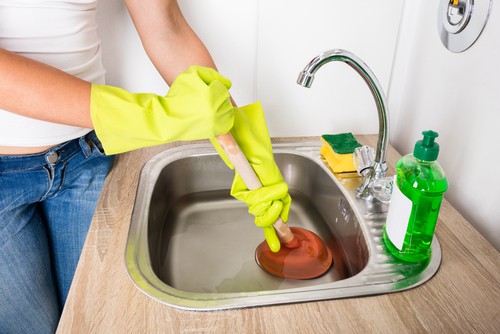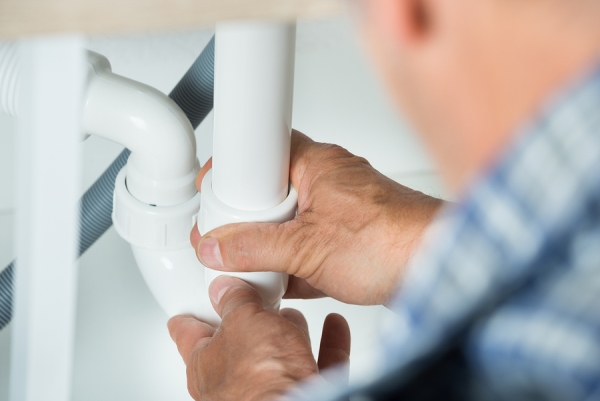Immediate Tips for Emergencies Until Help Arrives
Immediate Tips for Emergencies Until Help Arrives
Blog Article
Almost everyone will have their own piece of advice when it comes to Plumbing Emergencies: Tips on What To Do Before.

Pipes emergencies can strike at any moment, creating stress and prospective damages to your home. Whether it's a burst pipe, a stopped up drainpipe, or a leaky faucet, understanding exactly how to handle the scenario until a professional plumbing professional shows up can conserve you from further issues. This write-up provides necessary emergency plumbing pointers to help you alleviate damages and regain control throughout a pipes crisis.
Shut off the Water Supply
The initial step in any kind of pipes emergency is to turn off the water supply. For local issues, such as a leaking faucet or commode, turn off the valve near the component. In the case of a significant leakage or burst pipeline, find your home's major water shut-off shutoff and transform it off instantly. Knowing the place of these valves ahead of time can save valuable time throughout an emergency.
Address Tiny Leakages with Momentary Repairs
Small leakages can swiftly end up being significant troubles if left untreated. Use these temporary solutions up until professional aid shows up:
While these repairs aren't permanent, they can aid decrease water loss and damages.
Unclog Drains Safely
A clogged up drain can be a frustrating and unpleasant concern. Right here's how to tackle it:
If these methods don't function, prevent using too much force, as it may get worse the blockage.
Take Care Of Overflowing Toilets
An overruning commode can trigger instant mayhem. Right here's what you ought to do:
Turn off Your Hot Water Heater
In specific emergencies, such as a burst pipe, it's wise to shut off your hot water heater. This protects against getting too hot or damages to the system when water stops flowing. Turn off the power supply to the hot water heater (electrical or gas) and let it cool down to avoid possible threats.
Momentarily Stop a Burst Pipe
A burst pipe can bring about considerable water damage in minutes. To alleviate the problem:
Call a specialist plumbing technician right away to address the trouble completely.
Handle Frozen Water Lines Thoroughly
In cooler climates, icy pipes are an usual emergency. If you suspect an icy pipe:
Protect against Additional Damage
Taking fast activity to minimize damages can save you time and money in the future. Here's just how:
. Have an Emergency Pipes Kit
Prepare a standard plumbing emergency situation kit to take care of small problems properly. Your kit must include:
Having these tools accessible can make a considerable distinction in your ability to take care of emergency situations.
Know When to Call a Professional.
While quick fixes can aid briefly, particular plumbing issues need immediate specialist attention. Call a plumber if:.
Without delay getting in touch with a specialist ensures the problem is resolved properly and protects against further issues.
Conclusion.
Plumbing emergency situations can be overwhelming, however with the ideal knowledge and tools, you can handle the scenario efficiently up until aid arrives. By shutting off the water, addressing little leakages, and making use of temporary repairs, you can lessen damages and keep your home safe. Remember, these suggestions are momentary remedies; always speak with an accredited plumbing professional to handle the source of the issue. Prep work and fast reasoning are your ideal allies in any kind of plumbing emergency.
8 Helpful Tips for Managing Plumbing Emergencies at Home
If your plumbing system hasn’t failed once, wait for it because almost everyone has a story to tell. Sometimes, it could be simple emergencies such as a leaking pipe, a blocked cistern, or even a big burst pipe. In situations like this, you need to have some handy tips to save you some money and from possible damages.
Take care of minor issues early.
Sometimes, you could have avoided an emergency by taking proactive measures while it was still early. Some major plumbing emergencies can be a result of an ignored minor issue. We recommend that you have items like plumbing tapes and other related items. A plumbing tape can allow you to manage minor leaks before the plumber arrives.
Cut off the water supply.
This tip is essential in almost any type of leakage problem. For problems like minor leakages in the toilet or kitchen, turn off the supply that takes water to the affected pipes. If the leakage is a major pipe, you must shut off the supply valve to the entire building. This will help you avoid flooding your home and neighbors if you share a flat.
Know your plumbing system
Folks typically move into a new apartment without understanding the water supply around the building. This can prove disastrous if a water emergency arises and the plumber is far away. The previous tip will prove useless if you don’t practice this one. More importantly, know where your water shut-off valve is located – you’ll need that knowledge to prevent potential home floods.
Have some common handy tools
There are lots of plumbing emergencies that you can handle without hiring a plumber. That’s why you must keep some tools available always. Some tools that you can use to fix simple plumbing emergencies easily include plumbing tapes, screwdrivers, thread seal tapes, plungers, pliers, tape measures, and rubber gloves.
Insulate your pipes from cold
You’ll save yourself from many plumbing expenses if you protect your water pipes from the cold. This is because of the harmful effects that cold weather can have on your pipes. During winter, your pipes can burst from being overly expected to freezing temperatures. So, make sure insulators are there to keep the pipes working correctly.
Avoid practices that will clog your toilet.
Many people indulge in practices that can damage the plumbing system of the entire building. One of these is when they use their toilet to dispose-off garbage. They flush all kinds of things, such as paper towels, bandages, hairs, female sanitary products, etc., down the toilet. This will block your toilet in the long run, incurring unnecessary expenditures. Dump such waste in the trash instead.
Check your dials regularly.
Sometimes, there could be leakages in your home without noticing them in time. So, constantly monitor your water meter dial. If the dial is reading when there is nobody using water, this is an indicator that there is leaking. Check for leaks immediately. Call a plumber as soon as possible if you can’t find any.
https://www.constructionplacements.com/8-helpful-tips-for-managing-plumbing-emergencies-at-home/

I hope you enjoyed our article on Plumbing Emergencies: Tips on What To Do Before. Many thanks for taking a few minutes to read through our post. Make sure you take a moment to share this post if you enjoyed reading it. Thank you for taking the time to read it.
Estimating Report this page